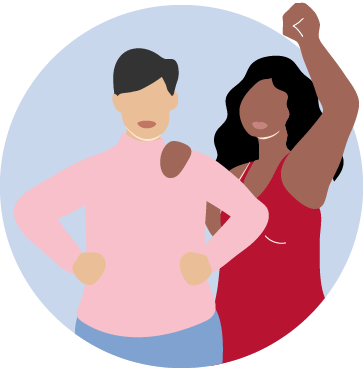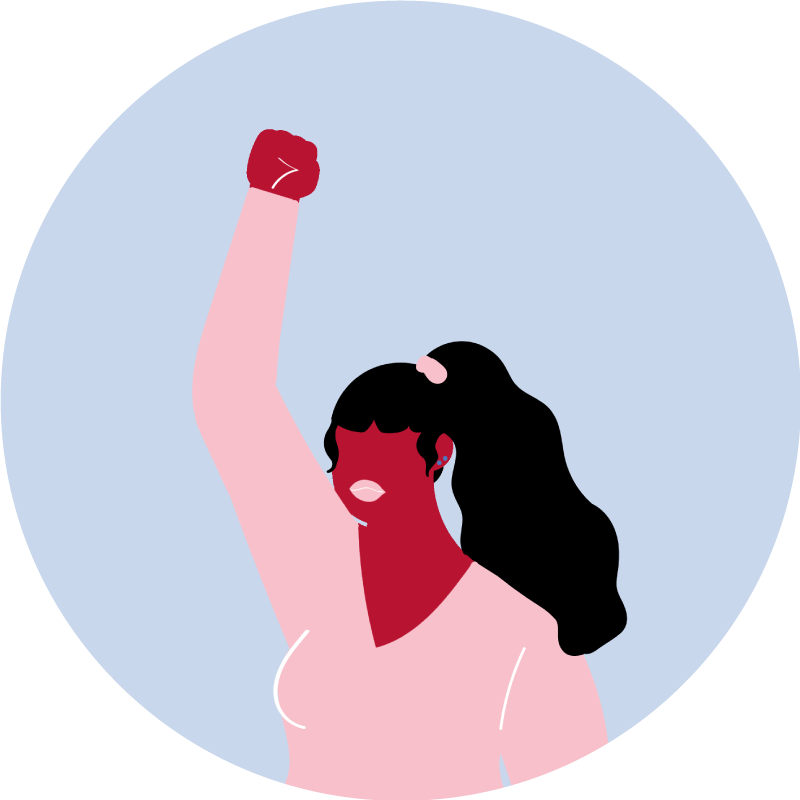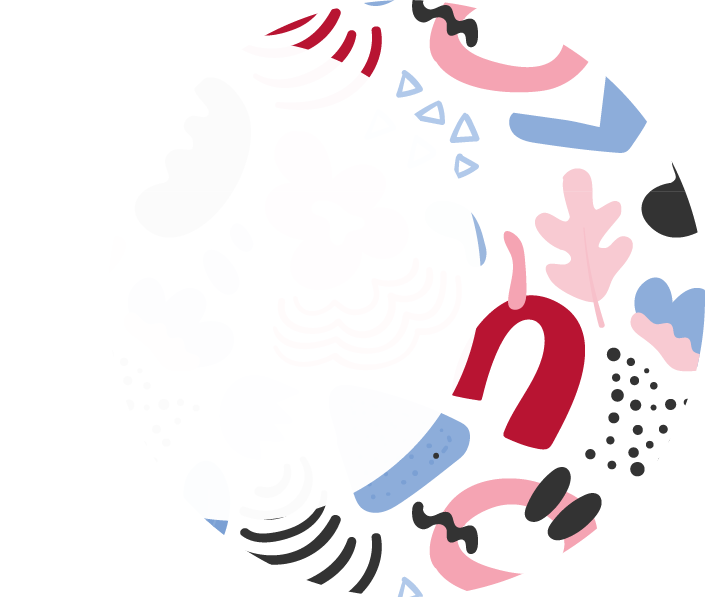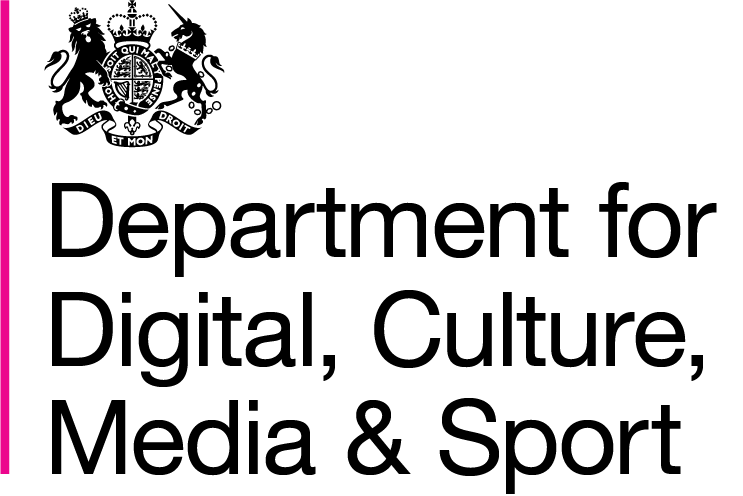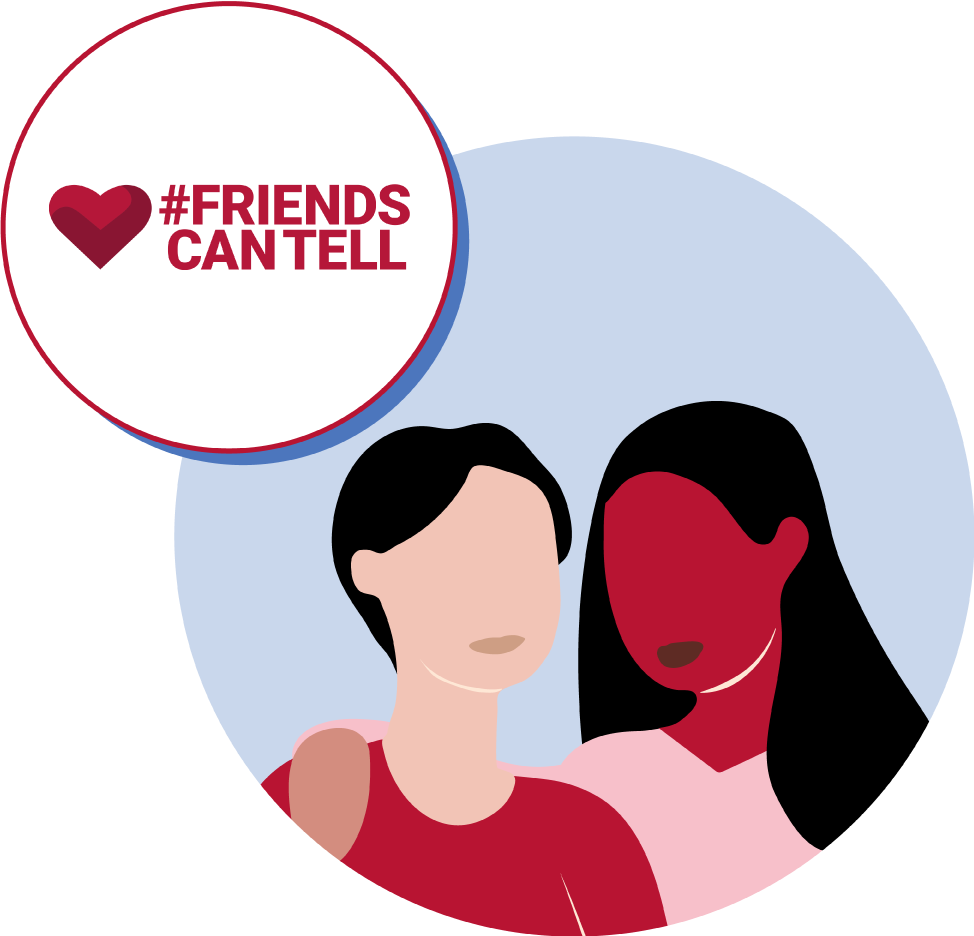
That's why we created the #FriendsCanTell campaign with young people so that you can find the tips, trusted support services, and resources you need.
You’ve seen something worrying in a friend’s relationship?
But now what?
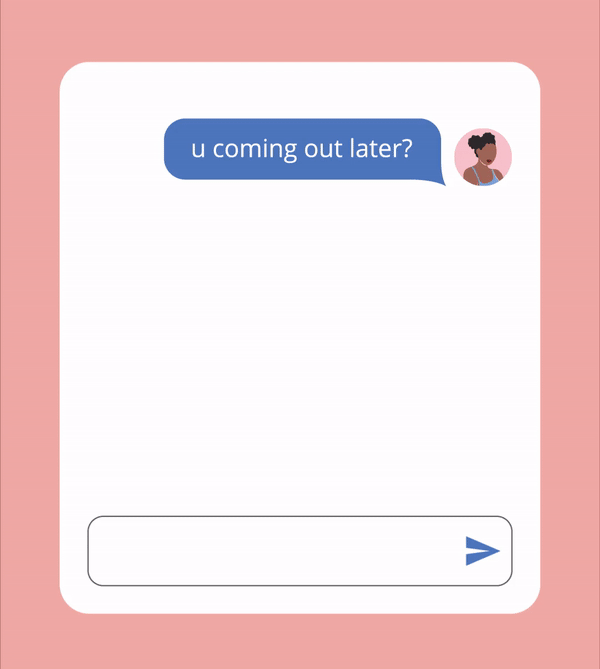
We're crowdsourcing what people might say to their friends. You can send us your answer (use words or emojis) or post it on social media with the hashtag #FriendsCanTell
To begin with, try and talk to them in private and never challenge the person who is hurting your friend.
Safelives ↗ has some tips on how to reach in to begin the conversation.
Once you both start talking, the conversation is likely to be sensitive. You can use our HEAR framework below to navigate this...(Of course, it’s also important that you both stay safe and if there is immediate danger, please call 999.)
your friend
Scroll through the gallery below and
see how you can HEAR a friend
Watch the #FriendsCanTell film that YANA co-created with young people. In this film, two friends see a glimpse of what their friend’s relationship is really like and try to reach in to let her know the way she’s being treated is not OK.
Women and Girls Network have put together these great resources ↗on self-care which can give you some ideas on how to look after yourself. It’s so important to do so. And remember, if you feel you can't support your friend, then that’s okay too. You can tell them what you think you can realistically do and suggest another source of source of care and support.
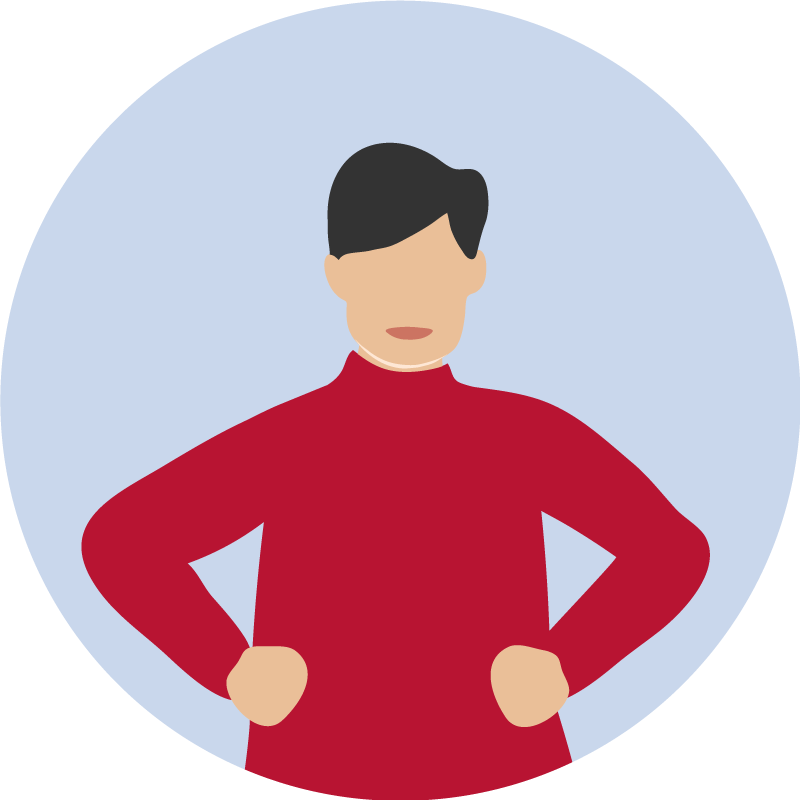
Remember, if you need to, you can seek confidential support without revealing who your friend is.
Refuge's National Domestic Abuse Helpline can be called for free 24 hours a day on 0808 2000 247. (It is for those over 16 years of age.)
If you live in Wales and are 16+, you can contact the Live Fear Free Helpline on 0808 80 10 800) 24 hours a day 7 days a week, for free advice and support or to talk through your options.
Use the #FriendsCanTell content
We've made all our content with young people and we want you to take it, use it, and get it front of more young people
Have you seen the #FriendsCanTell content or used the resources on this page?
Your feedback is crucial to us improving our resources so that more friends can help their friends. Would you mind taking a couple of minutes to answer some questions, please? Let us know if our resources have helped in improving your understanding of toxic relationships and if they've made you feel more confident about talking to a friend.
